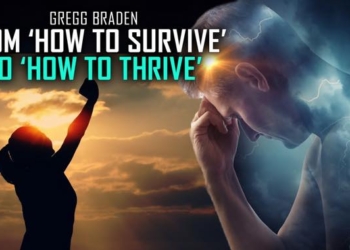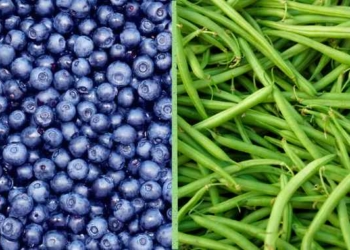
Many ailments afflicting the human body, including iron deficiency, can be attributed to an unbalanced diet. With the fast nature of today’s world, it is challenging to plan and source healthy food, especially when there is a fast-food joint every corner you turn to. Going the extra mile to include a nutritious diet in your lifestyle may be all you need to do to enjoy a full life.
Importance of Iron in The Body
Iron plays a vital role in optimum body function and is particularly useful for the following:
Transfer of Oxygen Within The Body
Iron occurs as hemoglobin in the red blood cells, responsible for transferring oxygen from your lungs to other body tissues.
Storage of Oxygen
Myoglobin, a form of iron similar to hemoglobin, is responsible for storing oxygen in the body's muscles.
Synthesis of DNA
DNA metabolism and essential functions like DNA repair and cell cycle control rely on iron to function.
Transport of Electrons
Iron-containing proteins take part in the biological transfer of electrons essential for biological reactions.
Repercussions of Iron deficiency
When the body receives less iron than required, several unpleasant effects can occur, including:
Onset of Anemia
Iron deficiency is characterized by the shortage of red blood cells in the body. Though common in the elderly, anemia cuts through all ages and gender groups, depending on the cause.
Impaired cognitive development
Children worldwide face iron deficiency problems due to poverty, which limits their access to proper nutrition. A deficiency in iron during childhood can cause sensory perceptions, memory, accuracy, concentration and intelligence.
Compromised Immune System
With fewer than normal red blood cells, less oxygen is available in the spleen, which plays a significant role in destroying pathogens. Fewer red blood cells also mean that less blood reaches the lymph nodes, where white blood cells that fight infections are found.
Complications During Pregnancy and Childbirth
A woman requires extra blood to cater for herself and the developing fetus. Without adequate iron levels, the body cannot produce sufficient blood for the mother and her unborn child. This leads to anemia.
Signs of Iron-Deficiency Anemia
Anemia presents with the symptoms below and if you experience several of these, consider going for a medical check-up.
- Shortness of breath
- Excess fatigue
- Sore tongue
- Low energy levels
- Ice-cube craving
- Brittle moon-shaped nails
- Lack of appetite in young children
- Unusually cold feet and hands
- Frequent headaches
- Pale skin
Causes of Anemia
Many situations can lead to anemia and they include:
Nutritional Deficiencies
A diet lacking good iron sources to replenish the bodily iron requirements can cause anemia.
Pregnancy
Pregnant women are at high risk of anemia due to their need for higher blood levels than usual to cater to their needs and those of their unborn baby. They are encouraged to supplement their iron levels with iron deficiency tablets.
Diseases
Certain body ailments like rheumatoid arthritis, kidney disease, cancer and HIV, can hamper the formation of red blood cells and lead to anemia.
Blood Loss
Bleeding can lead to a shortage of blood in the body and can occur in various ways, including:
- Gastrointestinal Bleeding through peptic ulcers, gastritis, esophageal cancer
- Parasitic Infections such as hookworms, whipworms and schistosomiasis
- Chronic hemorrhoids
- Heavy menstruation
- Blood Donation before the recommended recovery period of 56 days
- Surgery can cause significant loss of blood
Making Dietary Adjustments
Making adjustments in your daily diet is the simplest way to correct iron deficiency in the body. This is vital for pregnant women, infants, children and the elderly.
Iron Boosting Foods
There are mainly two sources of iron; animal and plant sources. Given the importance of iron in the body and the implications of deficiency, it is essential to ensure that you get your daily iron requirement from your food.
Animal Sources
The daily value (DV) for iron is 18mg, which is easy to obtain from food and animal sources provide the highest supply of iron to the body.
Organ meats
Some of the most iron-rich animal sources include organ meats like the liver, brain, heart and kidneys. 100g of chicken liver provides about 72% of the DV. However, pregnant women should avoid liver meats due to high vitamin A content, which is not recommended in pregnancy.
Red Meat
Regular consumers of red meat are less likely to experience anemia. Whether minced, grilled, boiled or sautéed, red meat is a ready source of dietary iron, with 100g of red meat providing 15% of the DV.
Seafood
Oysters are a superfood and an excellent iron source with a serving of 100g, providing 51% of the DV. Other types of seafood rich in iron include caviar, sardines, octopus, mussels, cuttlefish, mackerel, tuna and whelk.
Plant Sources
Whether you're vegetarian or not, plant food sources are a vital part of the diet. Plants are an essential source of nutrients, including iron.
Leafy vegetables
Leafy foods like spinach, beet leaves, turnip greens, swiss chard, kale are important sources of iron, with cooked spinach leading the pack with just 100g in servings, providing 22% of the DV.
Legumes
Soybeans, black beans, lentils, kidney beans, chickpeas, pinto beans, and lima beans are important dietary iron sources. Additionally, they provide other benefits with chickpeas providing nutrients like copper and manganese, while soybeans contain protein and amino acids.
Nuts
Pistachio nuts are excellent sources or iron in the diet, with 100g providing 14mg of iron. Other nuts that provide iron include cashew nuts, almonds and macadamia nuts.
Seeds
Plant seeds and their products provide wholesome nutrition for the body. Flaxseeds, pumpkin seeds, sesame and hemp seeds are great sources of iron and other beneficial nutritional elements like zinc, fiber, calcium and magnesium.
Mushrooms
Oyster mushrooms and white mushrooms are an excellent diet consideration with a cup of cooked white mushrooms providing up to 15% of the DV.
Foods for Better Iron Absorption
It is crucial to ensure that what you eat allows iron to get absorbed from your meal. Foods with a high vitamin C content improve iron absorption from meals. On the contrary, taking coffee or tea with your meals limits iron absorption. Acceptable iron levels will not only protect you from anemia but provide wholesome benefits to your wellbeing.














